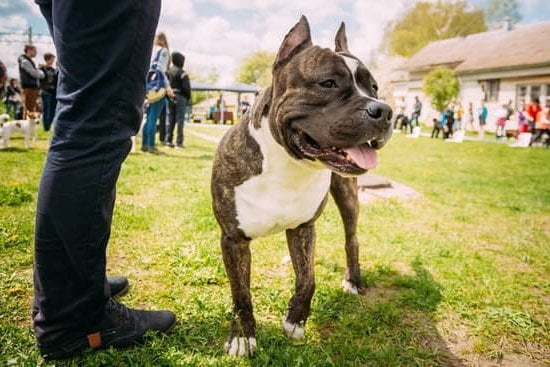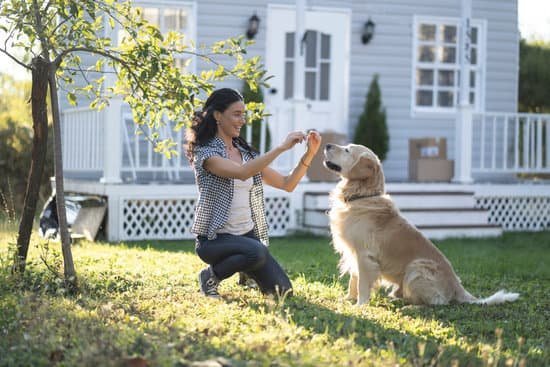Are you wondering, “Can dogs still be trained at any age“? Despite the old adage “You can’t teach an old dog new tricks,” the truth is that dogs of any age can continue to learn and be trained.
In this article, we’ll explore the science behind canine learning and understand how the age factor plays a role in training. We’ll also discuss the benefits of training older dogs, common challenges that may arise, and how to overcome them.
As pet owners, it’s important to recognize that our furry friends are capable of learning and adapting throughout their lives. The myth that older dogs cannot be trained is simply not true. Whether you have a puppy or a senior canine, training is an essential part of ensuring their well-being and fostering a healthy bond between you and your pet.
In the following sections, we will delve into the science of canine learning, debunking misconceptions about training older dogs. We will also highlight the benefits of starting or continuing training with senior dogs, as well as provide expert tips for effective training methods at any age. So, let’s dive into this myth-busting journey and discover why it’s never too late to teach an old dog new tricks.
The Science Behind Canine Learning
As dogs age, their physical and cognitive abilities change, which can impact their ability to learn new behaviors and commands. Understanding the scientific basis of canine learning at different stages of life is important for effectively training older dogs. The age factor in training revolves around the concept of neuroplasticity, which is the brain’s ability to adapt and change in response to experiences.
The brain’s plasticity decreases with age, making it more challenging for older dogs to form new neural connections associated with learning. This means that while older dogs can still be trained, it may require more time, patience, and repetition compared to training a younger dog. Despite these biological changes, research has shown that older dogs can still learn new skills and behaviors through proper training methods that take into account their cognitive abilities.
To better understand the age-related changes in canine learning, consider the following factors:
- Cognitive decline: As dogs age, they may experience a decline in cognitive function, including memory and problem-solving abilities.
- Sensory changes: Older dogs may have diminished sensory perception, such as reduced hearing or vision, which can affect their responsiveness to training cues.
- Physical limitations: Age-related conditions like arthritis or joint pain can impact a dog’s physical abilities during training activities.
Understanding these factors can help trainers tailor their approach to accommodate the unique learning needs of senior canines. By taking into account the science behind canine learning at different ages, trainers can develop effective strategies to facilitate successful training experiences for older dogs.
Benefits of Training Older Dogs
As the saying goes, “You can’t teach an old dog new tricks,” but is this really true? Many pet owners may wonder if their older dogs can still be trained at any age. The answer is a resounding yes. In fact, training older dogs can be just as effective and rewarding as training puppies, with some unique benefits that come with the experience and maturity of senior canines.
One of the key benefits of training older dogs is that they tend to have a calmer demeanor compared to puppies or younger dogs. This means that they are often more receptive to training and are able to focus for longer periods of time. Additionally, older dogs typically have a better understanding of basic commands and may already be house-trained, making the training process smoother and faster.
Another advantage of training older dogs is the bond it creates between the dog and its owner. When working with an older dog, you are building on an existing relationship based on trust and mutual understanding. This can strengthen the bond between you and your canine companion, leading to a deeper connection and increased cooperation during training sessions.
Moreover, training older dogs provides mental stimulation for them, which is important for maintaining their cognitive function as they age. Engaging in regular training activities can help keep their minds sharp and active, ultimately contributing to their overall well-being.
| Benefits of Training Older Dogs | Why It’s Never Too Late to Start |
|---|---|
| Calmer demeanor leads to better receptiveness | Stronger bond between dog and owner |
| Mental stimulation for cognitive function | Faster training process due to prior understanding of basic commands |
Common Challenges in Training Older Dogs and How to Overcome Them
As dogs age, they may experience physical and cognitive changes that present unique challenges in training. However, it is important to understand that older dogs can still be trained at any age, and with the right approach and techniques, they can continue to learn and adapt.
One common challenge in training older dogs is the presence of ingrained behaviors. Dogs that have lived many years with certain habits may find it difficult to break those patterns. This can be especially true for rescue dogs or those that have not received consistent training throughout their lives. Overcoming this challenge may require patience, consistency, and understanding from the trainer.
Additionally, older dogs may also experience sensory changes that impact their ability to learn. For example, aging dogs may develop hearing or vision impairments, making traditional training methods less effective. In such cases, trainers should consider using alternative methods such as hand signals or scent-based cues to communicate with the dog.
Another challenge in training older dogs is managing any age-related health issues they may have. Arthritis, joint pain, or other medical conditions can make certain physical activities more difficult for senior dogs. Trainers must be mindful of these limitations and modify exercises and commands accordingly to ensure the dog’s comfort and safety during training sessions.
| Common Challenges | How to Overcome Them |
|---|---|
| Ingrained behaviors | Patience, consistency, understanding |
| Sensory changes | Alternative methods (hand signals, scent-based cues) |
| Age-related health issues | Modify exercises and commands for comfort and safety |
Tailoring Training Methods for Senior Canines
When it comes to training older dogs, it’s important to make adjustments and considerations to accommodate their age and abilities. Here are some tailored training methods for senior canines:
- Adjust the pace of training: Older dogs may not have the same energy levels as younger pups, so it’s important to adjust the pace of training sessions. Shorter, more frequent sessions can be more effective than long, strenuous ones.
- Use positive reinforcement: Older dogs may respond better to positive reinforcement, such as treats and praise, than to harsh corrections. This can help motivate them and make the training process more enjoyable for both the dog and the owner.
- Focus on mental stimulation: As dogs age, their physical abilities may decline, but their mental capabilities remain intact. Engaging in activities that stimulate their minds, such as puzzle toys or obedience exercises, can be very beneficial.
It’s also important to consider any health issues or physical limitations that may affect an older dog’s ability to learn new behaviors. For example, a dog with arthritis may struggle with certain obedience commands that require physical exertion. In these cases, adjustments can be made to the training approach to ensure the dog’s comfort and well-being.
Ultimately, tailoring training methods for senior canines involves taking a compassionate and understanding approach that accounts for their specific needs and abilities. By making these adjustments and considerations, owners can still successfully train their dogs at any age, helping them live their best lives well into their golden years.
Success Stories
One heartwarming success story comes from Barbara, a 10-year-old rescue dog who was adopted by a loving family. Despite her age and previous lack of training, Barbara’s new owners were determined to help her become a well-behaved and obedient companion.
Through patience, consistency, and positive reinforcement, they were able to teach Barbara basic commands such as sit, stay, and come. With dedication and perseverance, Barbara transformed into a well-mannered and obedient dog, proving that age is just a number when it comes to learning new skills.
Another inspiring example is Max, an 8-year-old Beagle mix who struggled with leash pulling and jumping on visitors. His owners were initially hesitant to enroll him in training due to his age, but they decided to give it a try.
With the help of a professional trainer who tailored the program to suit Max’s age and temperament, he made significant progress in overcoming these behavioral issues. Over time, Max became calmer on walks and learned to greet guests politely, showing that older dogs are indeed capable of learning new behaviors with the right approach.
One more remarkable success story involves Buddy, a senior Labrador Retriever who had spent most of his life without any formal training. When his owner decided to work on obedience training with him at the age of 12, many people doubted that it was possible for Buddy to change his behavior at such an advanced age.
However, with positive reinforcement techniques and plenty of encouragement from his owner, Buddy surprised everyone by mastering commands like “heel” and “stay.” This heartwarming example serves as a reminder that dogs can still be trained at any age if given the proper tools and support.
Expert Tips for Effective Training of Older Dogs
As dogs age, their learning abilities and behaviors may change, but training is still possible. With the right approach and understanding of their needs, older dogs can still benefit from effective training. Here are some expert tips for training senior canines:
Be Patient and Understanding
Older dogs may take longer to learn new commands or behaviors compared to younger ones. It’s important to be patient and understanding during the training process. Avoid getting frustrated and instead focus on providing clear communication and positive reinforcement.
Use Positive Reinforcement Techniques
Positive reinforcement methods, such as treats, praise, and toys, work well with older dogs. These techniques not only motivate them to learn but also strengthen the bond between you and your dog. Rewarding good behavior encourages them to continue practicing what they’ve learned.
Consider Their Physical Limitations
Senior canines may have physical limitations or health issues that could affect their ability to perform certain tasks. When training older dogs, it’s crucial to consider these limitations and make adjustments as needed. For example, if your dog has arthritis, you may need to choose low-impact activities or exercises that won’t cause pain or discomfort.
By incorporating these expert tips into your training approach, you <Can Dogs Still Be Trained At Any Age> effectively train older dogs and help them continue learning throughout their lives. Remember that every dog is unique, so be flexible in your methods and tailor them to suit your dog’s individual needs and capabilities.
Conclusion
In conclusion, it is clear that the myth of “You Can’t Teach an Old Dog New Tricks” has been debunked. The science behind canine learning supports the idea that dogs can still be trained at any age, with adjustments and considerations to account for the aging factor. The benefits of training older dogs are numerous, from improving their behavior and obedience to providing mental stimulation and enhancing their bond with their owners.
While there may be challenges in training older dogs, such as physical limitations or deeply ingrained habits, these obstacles can be overcome with patience, consistency, and positive reinforcement. Tailoring training methods to the individual needs of senior canines is crucial for success, and there are many examples of real-life success stories that demonstrate the potential for learning at an advanced age.
In light of these insights and expert tips for effective training of older dogs, it is evident that it is never too late to start teaching an old dog new tricks. By embracing the potential of canine learning at any age, dog owners can provide their beloved pets with a fulfilling and enriching experience that contributes to their overall well-being and quality of life.
Frequently Asked Questions
What Age Is Too Late to Train a Dog?
There isn’t really a specific age that is “too late” to train a dog. While it may be more challenging to train an older dog, they can still learn new behaviors with patience and consistency.
What Is the Oldest Age a Dog Can Be Trained?
The oldest age a dog can be trained varies depending on the individual dog. Generally, older dogs can still be trained, but it may take longer for them to learn new commands or behaviors compared to younger dogs.
Can Older Dogs Still Be Trained?
Yes, older dogs can definitely still be trained. It’s important to consider their physical abilities and any potential health issues when training an older dog, but with positive reinforcement and proper training techniques, older dogs can learn new things and improve their behavior just like younger ones can.

Welcome to the blog! I am a professional dog trainer and have been working with dogs for many years. In this blog, I will be discussing various topics related to dog training, including tips, tricks, and advice. I hope you find this information helpful and informative. Thanks for reading!





